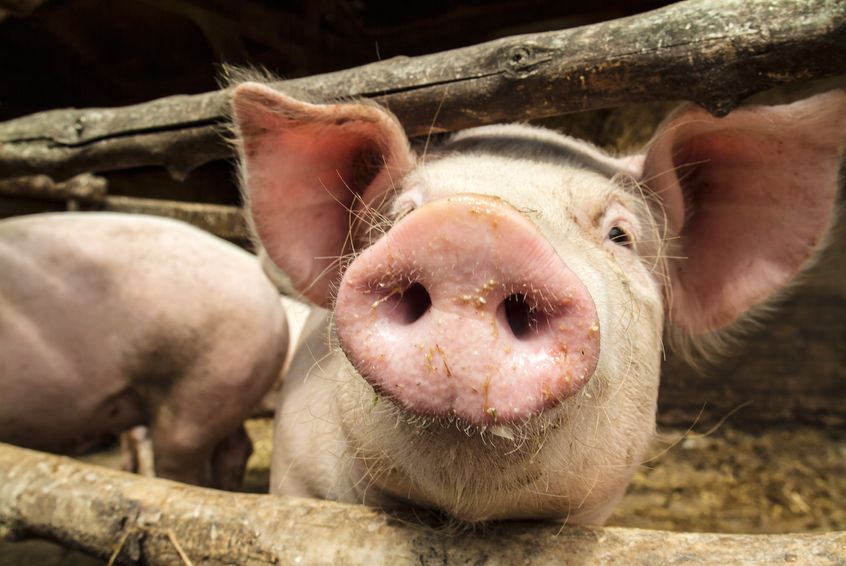
Scottish pig producers are experiencing a strong seasonal upturn, with farmgate prices rising 8% from a low point in late February.
Although pig prices remain 9% below their level at this time last year, they remain above mid-May levels from 2018 and 2019, Quality Meat Scotland's (QMS) new analysis shows.
Stuart Ashworth, QMS chief economist, says that although the UK is around 66% self-sufficient in pig meat, there are some cuts with limited UK demand.
This means exports continue to play a key part in maximising carcase revenue for pig meat processors, just as the price of imported product does.
“The pig meat sector provides an interesting case study for the significance of international trade and the terms and conditions on which they take place," he said.
"This includes the measures taken internationally at the border to protect animal health and food safety, and how they impact not only on farmgate prices but productive capacity."
Incursion of disease can significantly destabilise the marketplace and border control measures to prevent, or reduce, the risk of a disease incursion are a key component to minimising the public and private cost of controlling a disease outbreak.
Mr Ashworth said: “It has been well documented how measures taken to control African swine fever (ASF) have devastated the sow herd in China and, to a lesser extent, in several European countries. For example, compared to 5 years ago, Romania reports a 14% smaller sow herd and Poland a 5% decline.
“Measures taken to control animal disease locally can significantly impact on trade, again as the global pig market shows.
"The reduction in the sow herd in China resulted in significant growth in import demand from there. For example, the UK and the EU nearly tripled exports to China between 2018 and 2020."
However, controls to minimise the risk of introducing a disease into a country - whether that be an animal disease, such as ASF, or a human disease, such as Covid – can lead to blanket bans of supplies from an affected nation, or part of a nation, to specific processor exclusions.
The global pork sector illustrates the challenge, with recent reporting of ASF in Germany resulting in China banning imports of German pork and temporary closure of some pig processing plants due to Covid-19 controls in the UK led to the removal of approved supplier status by China for those plants.
“The consequence of restrictions on individual sites is to compromise their competitiveness with plants still able to trade with China," Mr Ashworth explained.
"While the EU reported a 30% growth in pig meat exports to China during January and February compared to the same period last year, with Spain gaining at Germany’s expense; the UK saw no growth at all."
Mr Ashworth explains how such disruptions impact market prices: “Although Spanish and German producer prices remain lower than a year ago, partially as a consequence of differences in market access, Spain’s price is around 6% lower than last year while German prices are 27% lower and, unusually, lower than Spanish prices.”
The loss of German exports to China also impacted on UK trade to Germany in the final quarter of 2020 by reducing demand.
It also led to some increase in German exports to the UK, particularly in November and December, as they sought alternative markets.
“While this brief discussion illustrates the complexities of international trade flows it also illustrates the importance of good sanitary and phytosanitary, or SPS, controls within international trade deals as well as market access in supporting markets,” Mr Ashworth said.
